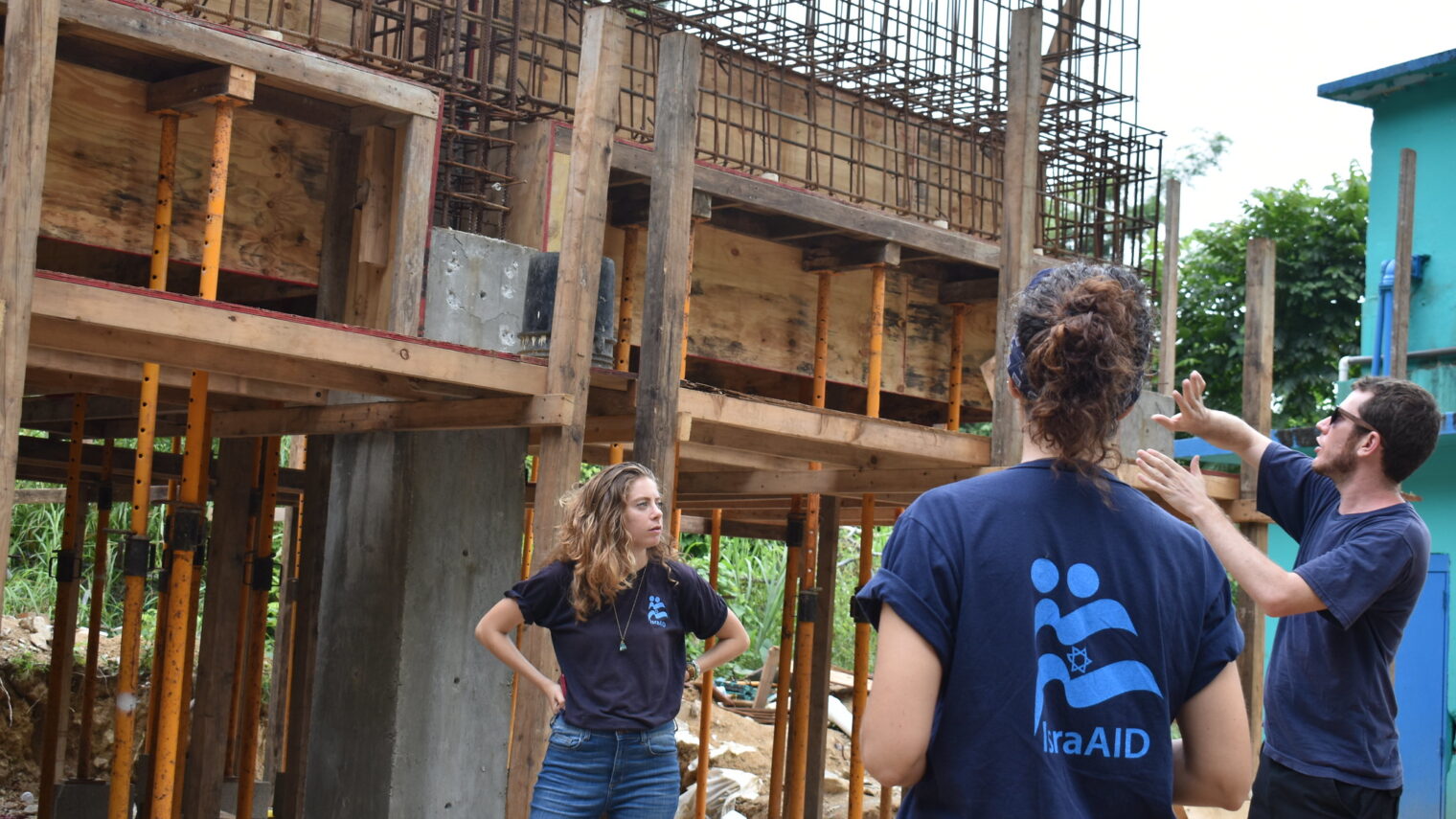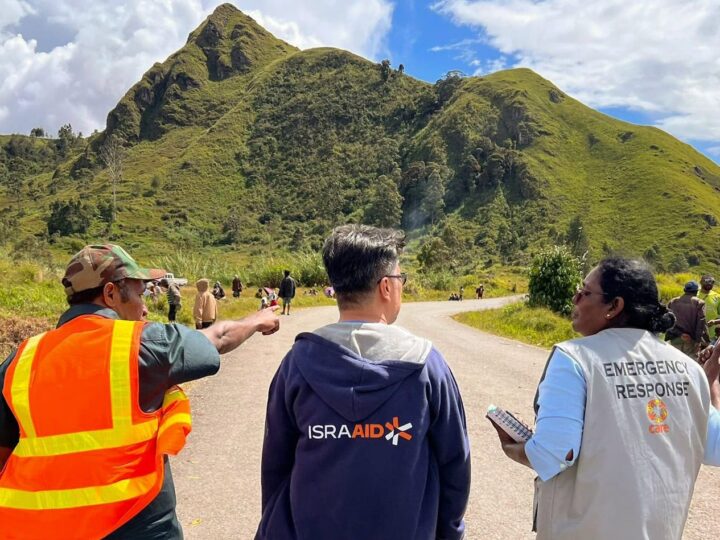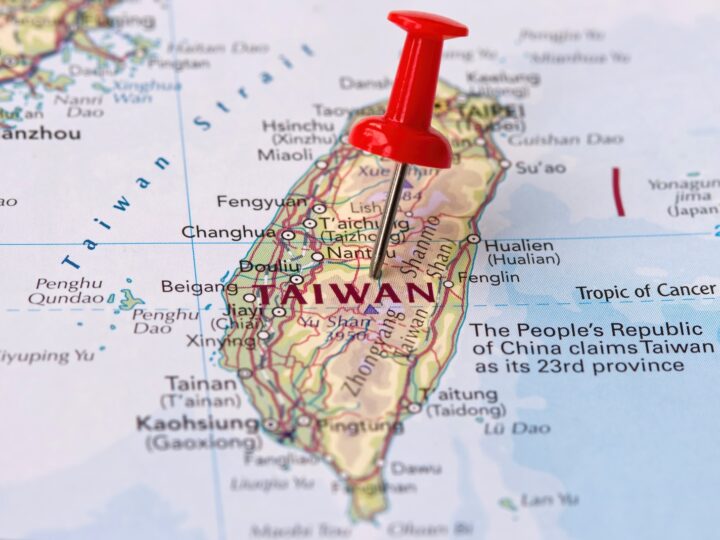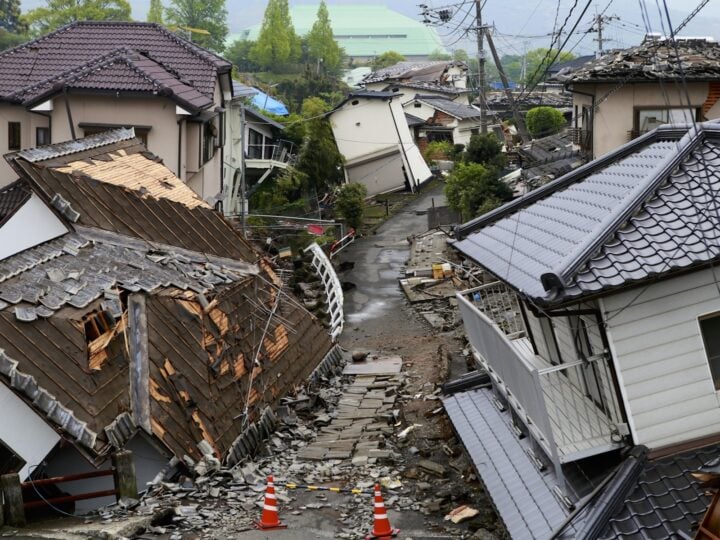When I ask Dr. Francisco Feliciano, the alternative education director of Aspira School in Puerto Rico, how Israeli humanitarian aid group IsraAID helped his school in the wake of the devastating Hurricane Maria, tears well up in his eyes and for a moment he can’t talk.
“Wow,” he says, and slaps the desk in front of him.
It takes him some time to recover, and when he finally replies, he tells a story not about the school exactly, but more about himself.
“I was very strong in the days after the hurricane,” he tells me. “I provided food for the students, offered support to my staff and the families, and then when I left school, I carried on helping. I helped control the traffic, helped keep people in line in the supermarkets so they wouldn’t fight.
“And then in one of the [resiliency] workshops with IsraAID at the school I realized just how much I’d done, and I thought, where did I get the strength to do that? I started to cry. It was the first time since the hurricane that I’d shed a tear. Then Hannah [a psychosocial expert working for IsraAID] told me, ‘Francisco, this is called post-traumatic stress disorder. You did all those things. Well done. Be calm now.’”
“That,” says Feliciano, “Is one way Israel helped not only us, but me personally. More than power, more than food, more than any kind of materialistic support – when you hear that someone is ready to help you, it touches your heart.”
When you land in San Juan today, Puerto Rico looks almost recovered. It’s a beautiful island, green, lush and warm, with that improbable turquoise sea of postcards, stunning pale gold beaches and colorful freshly painted houses. The people seem as warm and vibrant as the island, and tourists are returning in growing numbers, spilling off the huge cruise ships that slide into San Juan’s port dwarfing even the massive Castillo San Cristóbal Fort.
As you start to travel, however, signs of hurricane damage begin to emerge: a huge electricity pylon collapsed on houses, blown-out buildings that only have an outside frame and concrete stairs left, blue tarpaulins replacing lost roofs all over the island, the tops of trees in the rainforest scissored off.

You also don’t have to dig very deep to see that many of the people still bear the scars of Hurricane Maria.
Everyone has their story to tell, from Edwin Goritz, the barista who makes our coffees every day, whose grandfather died after drinking polluted water; to Adalexis Rios, executive director of Aspira, who was stranded in the mountains and only discovered her daughter and sisters were alive through a broadcast on the radio; or teacher Pedro Senablio, whose apartment was destroyed when the roof fell in.
Tears are never far from people’s eyes.
Maria was a catastrophic storm. It hit the Caribbean in September 2017, barrelling into Puerto Rico as a deadly category 4 storm with torrential rain and winds of 150mph. It wiped out 95 percent of the island’s electricity and 80% of its agriculture, leaving huge swathes of the country with no clean water, creating a major humanitarian crisis.
It was the worst natural disaster to hit Puerto Rico, and the 10th most intense Atlantic hurricane on record. In Puerto Rico it caused $90 billion in damage, destroyed 230,000 homes, and led to the deaths of nearly 3,000 people. Tens of thousands of locals left for the US mainland after the storm; many may never return.
“Hurricane Maria was the most traumatic experience a human being can have,” says Senator Carmelo Rios, Senate Speaker for Puerto Rico in an interview at Capitol Hill in San Juan.
“We have had hurricanes before, and thought we knew everything there was about dealing with hurricanes and their aftermath. But coming out of your house for the first time and seeing the devastation, it was something I cannot describe. It was a war zone.”
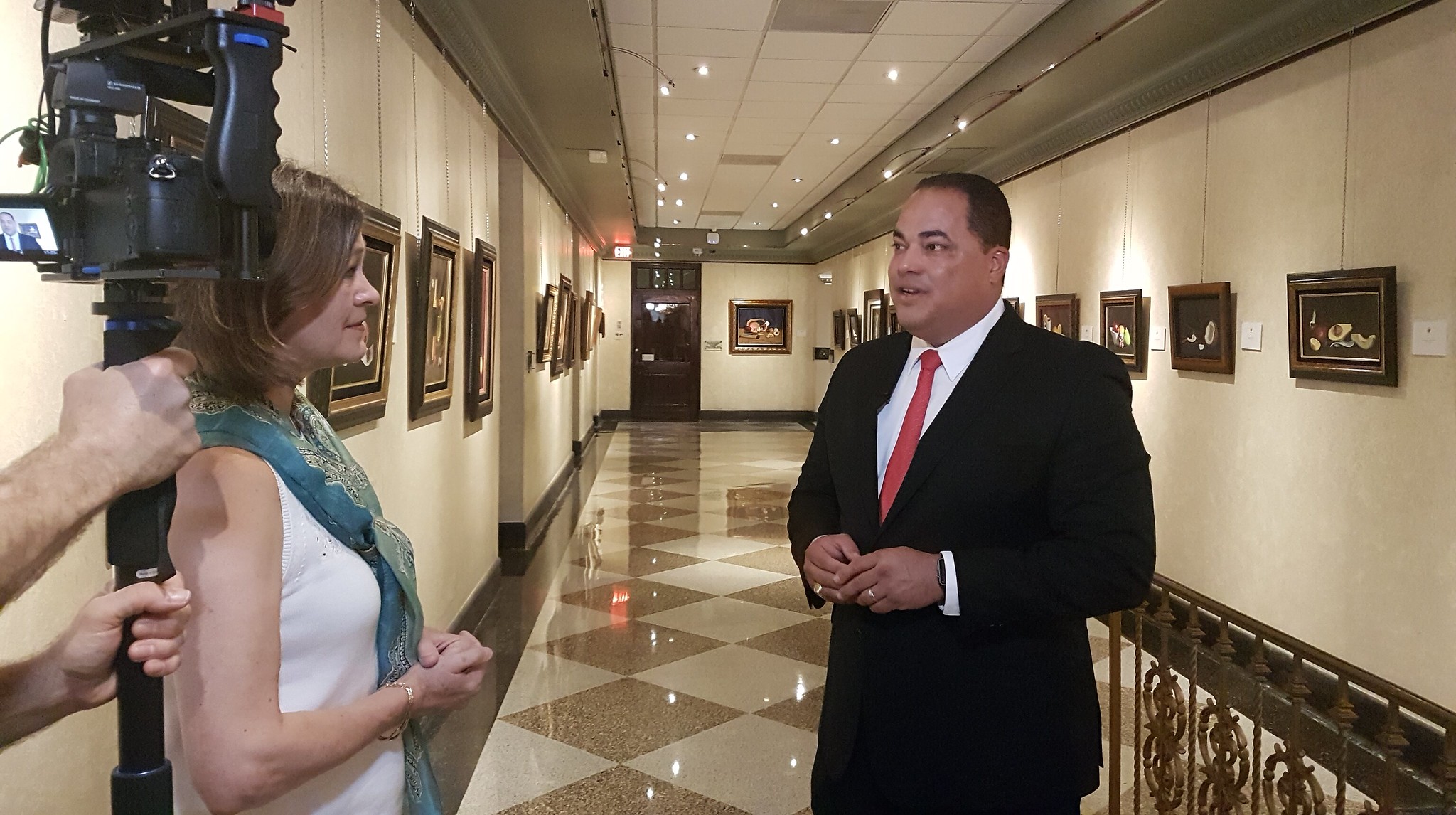
In the immediate aftermath of the hurricane, Rios was one of the first elected officials to make it off the island to go to Washington, DC to ask for help. It took him 12 hours to get there, scrambling for any connection possible, as transportation and communications across Puerto Rico were down.
When he returned a few days later, with only promises of aid to come, he discovered that international help had already arrived in the unlikely form of IsraAID.
Even more startling was the news that the Israelis were already distributing aid out in the mountains, which had been hardest hit by the hurricane, were still cut off, and were regarded by most people as too dangerous to visit.
“It was a big surprise, a good surprise,” says the senator. “How did they get there?”
In the first days and weeks after the hurricane, IsraAID worked alongside volunteers from the local Jewish community, to distribute food and water filters to around 6,000 people in six remote communities. They operated mobile health clinics, and treated hundreds of people in the country’s poorest communities. They also provided mental-health support in six shelters, and trained local staff in two hospitals techniques to treat trauma.
Unlike most other aid organizations on the island, however, once that initial period of emergency response was over, the Israeli NGO did not leave the island.
It remained and began building two long-term projects designed to create resiliency in the local population, at Aspira – a community-based educational organization — and in the mountain village of El Real in Patillas, a village so small it doesn’t appear on maps.
Building resiliency

IsraAID was introduced to Aspira by chance. The Aspira Carolina School, on the outskirts of San Juan, is part of a nonprofit organization that has been providing alternative schooling for at-risk youth across the island for some 50 years. It also runs programs for US veterans who want to return for education after the military, and has an HIV prevention program. Around 3,400 people pass through Aspira programs every year.
Just before the hurricane, the school had started a mosquito-control program with students. An entomologist adviser to the program handed details of the school to IsraAID team members.
When IsraAID arrived at the school a short time after the hurricane, the organization began training and supervising Aspira’s 60 teachers in psychological support, offering tools and knowledge in stress-management techniques. The work quickly rippled through the community, as teachers passed this knowledge to students, and students passed it on to families and friends.
During our visit, Edwin Gonzalez, a teacher at Aspira Carolina, demonstrated the superhero exercise, which the school developed with IsraAID. Students are asked to create a superhero and at the end of the session they identify what attributes they share with their superhero.
“When the students saw that they were their own superheroes they started to cry,” says Gonzalez, who used techniques from IsraAID to help his own extended family. “When you tell a student who has lost everything that they are the key to their own lives, it helps them believe in themselves again. It not only changed them. It changed all of us.”

After the huge success of the workshops, IsraAID began working with Aspira to develop a long-term resiliency module as part of the organization’s regular teaching curriculum.
“This idea blew my mind,” says Rios. “This can have an important impact beyond what we suffered in the hurricane. Once we have teachers trained and once it is part of the curriculum, it will positively impact students for many years to come.
“The skills that IsraAID is teaching us can be applied to any type of situation – disasters, bullying, trauma, violence at home, divorce, parents in jail – there are many different life situations that are traumatic to our youth, and these skills are applicable at all levels.”
Clean water in the mountains

IsraAID’s second long-term project is in El Real, a village a meandering hour and a half drive from San Juan. About 1,000 people live in this bucolic village, and like so many of the communities in the mountains, it took a direct hit from Maria.
When IsraAID arrived, villagers had no power and no access to clean, running water. Instead they were drinking from a dirty river. It took seven days before bottled water even began to make it to their village, and another eight months before they had power again.
When IsraAID staff came through offering temporary water filters, the local water committee in El Real begged them to stay and help them build a water-filtration system that could be used even if the power went out again.
In January this year, working with the Inter-American University of Puerto Rico and with the support of the Ministry of Health, IsraAID finally completed construction of El Real’s new gravitational sand water filtration system on the outskirts of the village.

The new filtration system, which was formally inaugurated during our visit, does not require electricity, has minimal maintenance costs, and provides a permanent communal supply of safe water directly to village homes.
“We had so much dirty water after the hurricane, we couldn’t even wash clothes. And even when the water was supposedly clean, it wasn’t,” says Lourdes Melendez, a New Yorker who came to live in El Real 12 years ago.
“IsraAID taught me the value of water. They taught me how to use clean water, how to filter our water, how to preserve the water resources we have. When we lived in New York we took it for granted that we’d have clean water; we never thought about where the water’s coming from. I was so surprised a group of Israelis came. They responded faster than any of the government corporations.”
Though IsraAID’s goal in El Real was to provide clean water, the organization has also provided psychosocial help to the villagers and has focused on resiliency training to help locals prepare for any future disasters.
“That’s critical,” says Haley Broder, IsraAID Puerto Rico Head of Mission.
Preparing for the future in Puerto Rico
This training for the future is a key part of IsraAID’s continuing mission in Puerto Rico. The organization is now working on a new Disaster Risk Reduction program initiated with the Puerto Rico Department of Education. It is being piloted in six public schools in Patillas – five elementary and one secondary – and if all goes well, from December this year it will be introduced in schools all over the country.
“It’s all about preparing schools, families and communities to respond to future emergencies,” says Broder, who hails originally from Seal Beach, California.
“Training for resiliency is very important. There are many rural communities that still don’t have clean water or electricity, and there are psychological needs that must be addressed. Of course there’s PTSD after Maria, but there’s nothing ‘post’ about it when you live with a tarpaulin over your roof and it rains.”

“This is an area that gets hit a lot by hurricanes,” she adds. “Also, with the rise of climate change the predictions are that hurricanes are going to get stronger and there will be storms like Maria every few years. That’s very concerning.”
“Our goal in Puerto Rico is to develop long-term programs to help the people on their journey towards recovery,” says Yotam Polizer, co-CEO of IsraAID. “It’s important to come in an emergency, but long-term recovery is what’s essential and that’s often when people don’t get the help they need. The projects here will help the people build resiliency and face the future.”
IsraAID around the world
In January, IsraAID was honored for its disaster relief in the region at the CGI Clinton Foundation Summit in San Juan. Two months earlier it was also honored for its work in Puerto Rico at an event organized by Somos, a Latino social-activism organization that works with the New York State Assembly and the Senate’s Puerto Rican and Hispanic Task Force.
Notably, in both cases, Israel was the only foreign country to be invited to take part, underscoring the recognition of the significant aid it has offered the region.
But IsraAID’s work in Puerto Rico is actually just a tiny part of its overall work. Since it was founded in 2001, the organization has helped more than two million people in 49 countries. That’s a huge response from what is essentially a pretty small NGO.
Over the years, it has sent vital emergency relief spanning from search and rescue to medical aid and psychosocial support to some of the world’s largest disasters including the tsunamis in Southeast Asia and Japan, earthquakes in Haiti and Nepal, devastating hurricanes and tornados across the US, and more recently the cyclones in Mozambique.
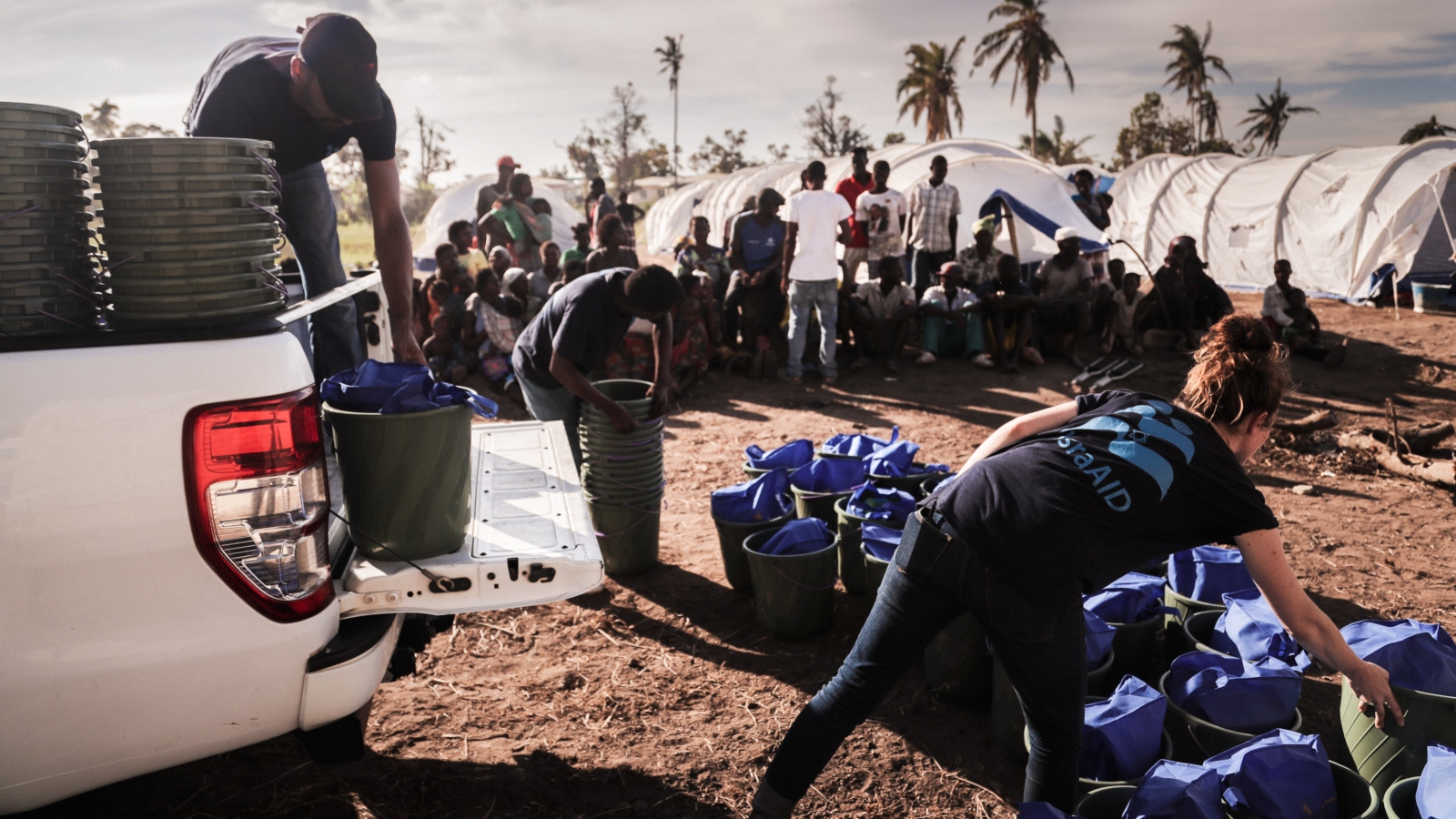
Since 2015, IsraAID has also been offering medical, psychosocial and educational support to some 100,000 Syrian, Iraqi and Afghan refugees in Greece and Germany. In October last year, IsraAID received the German Chancellor’s Integration Award in recognition of its outstanding work.
“We are first on the ground and we usually arrive within 72 hours, but even more important, we are last to leave,” says Polizer. “First in, last out.”
“People don’t realize that four to six weeks after an emergency, a lot of volunteers leave and the local people feel abandoned and suffer a second wave of trauma because now there are not enough people helping,” explains Seth Davis, the executive director of IsraAID.
“IsraAID is dedicated to doing long-term work. We stay for years. We were in Haiti close to eight years; Japan, seven; the Philippines already five.”
The best of Israel
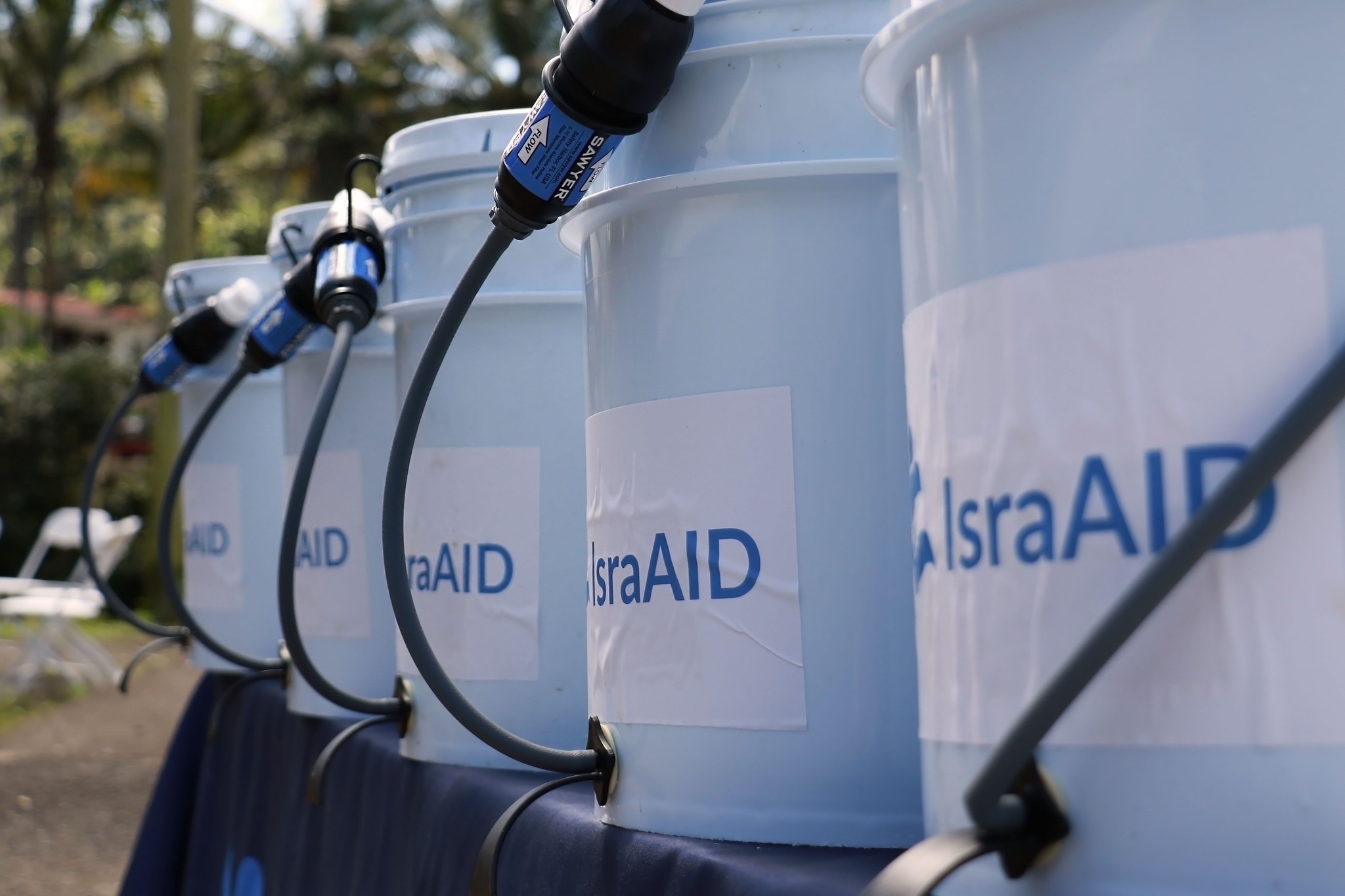
In many ways, IsraAID is the essence of all that is best about Israel – it’s small, lean, adaptable and innovative. It thrives in situations of chaos, responding quickly to local needs, and – in true Israeli spirit – is ready to find solutions for seemingly impossible situations.
“There’s an Israeli mentality of being completely flexible, jumping in the deep end and just saying yes to everything,” says Hannah Gaventa, Head of Mission for IsraAID in Dominica, an Englishwoman who has worked for many international aid organizations in the past. “It’s a mentality of putting up your hand to say, ‘Yeah, I’ll do that.’
“The bureaucracy is very low in IsraAID so you can be flexible and react to needs accordingly and that’s so important in a humanitarian emergency because you have to be flexible, react fast and change your minds about things. With IsraAID, the flexibility and the fast reactions and willingness to jump in is really something else,” she explains.
“I love IsraAID’s model and way of doing things,” adds Broder, who worked with refugees in Greece before joining IsraAID. “They come in and get right to work and they don’t take ‘no’ for an answer, whatever the process, and whatever needs to be done. That’s why I work with IsraAID and not others, because with tiny teams and a small organization we can still have a massive reach.”
A sweet and sour hurricane
For the people of Puerto Rico, there is so much gratitude for what IsraAID has done for their island.
“We couldn’t believe it,” says Gonzalez. “That people would come from Israel, half the world away. It made such a difference. Sometimes you believe that because you are a tiny country, no-one is paying attention to you, no-one cares. But when a country so far away from you arrives, and says, ‘Hey, we are here, we saw what happened, and we want to help,’ it really impacts you.”
“Maria was a sweet and sour hurricane — sour because it happened, but sweet because it brought the best, not only of Puerto Rico – we are used to that, but that it brought people all the way from Israel,” says Senator Rios.
“There is so much to be done here. The reconstruction of Puerto Rico will take six to eight years at least. Millennials will learn the hard way how to build a country together. There are still many missions to be accomplished and government alone cannot do it. I thank IsraAID. They really saved lives. That will never be forgotten.”
“We have hurricanes in Puerto Rico, but I was in complete negation,” admits Feliciano. “Before Maria I didn’t prepare anything. It was only when IsraAID came that I realized we live in the Caribbean Sea, and it’s normal for us to have hurricanes. Now I’m ready. Now I’m prepared.”
For teacher Gonzalez, he uses IsraAID not just to give psychosocial support to his students, but also to teach them another unexpected lesson about life.
“Israel is living in constant crisis,” he tells me. “You’d think a country like that wouldn’t have time to help others because they are so busy with their own problems, but here they are helping and changing our lives.
“I tell my kids that if Israel can do that, they can do it too – no matter where they live, or what their problems are, they can help people.”
If you would like to donate to IsraAID’s long term recovery efforts, click here.





